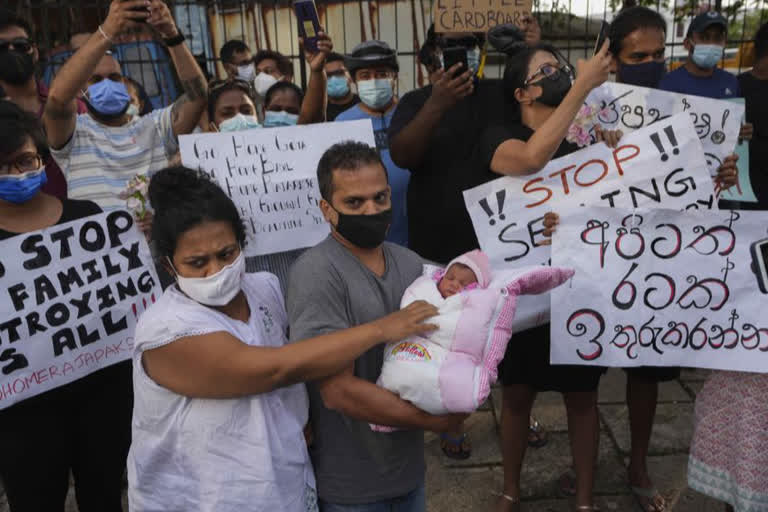Colombo: A new Sri Lankan Cabinet is expected to be sworn in on Monday as part of the government's bid to tackle the raging public anger against the ongoing economic hardships caused by the island nation's worst economic crisis. On Sunday night, all 26 ministers submitted letters of resignation. Speaking to reporters, Education Minister and Leader of the House Dinesh Gunawardena said the Cabinet Ministers handed over their resignations to Prime Minister Mahinda Rajapaksa. He provided no reason for the mass resignation.
President Mahinda Rajapaksa would be meeting his younger brother and President Gotabaya Rajapaksa on Monday, he said. We discussed the situation in the country at length. There will be solutions to the ongoing fuel and power crisis, Gunawardena said. The island nation has seen widespread public anger against the government for its mishandling of the worst economic crisis.
The country is grappling with what is said to be its worst economic crisis since independence from the UK in 1948. It is caused in part by a lack of foreign currency, which is used to pay for fuel imports. People are languishing in long queues for fuel, cooking gas and endure power cuts lasting multiple hours. The public came out onto the streets independently of political parties. The mass agitation prompted the government to impose a state of emergency which gives security forces sweeping powers to arrest people. Later, a curfew was imposed to curb public protests which the public defied.
The Indian economic relief extended since mid January has only provided temporary relief as the situation on the ground for scarcities of essentials had not seen any marked improvement. People have been demanding the resignation of President Rajapaksa. There have been calls for an all party Cabinet but the indications from the main Opposition are such that they would not want to share positions in the new Cabinet.
Also read: Pressured by continuing public protests, Sri Lankan cabinet resigns
Sri Lanka is currently experiencing its worst economic crisis in history. With long lines for fuel, cooking gas, essentials in short supply and long hours of power cuts the public has been suffering for weeks. Rajapaksa has defended his government's actions, saying the foreign exchange crisis was not his making and the economic downturn was largely pandemic driven where the island's tourism revenue and inward remittances waning.
PTI



